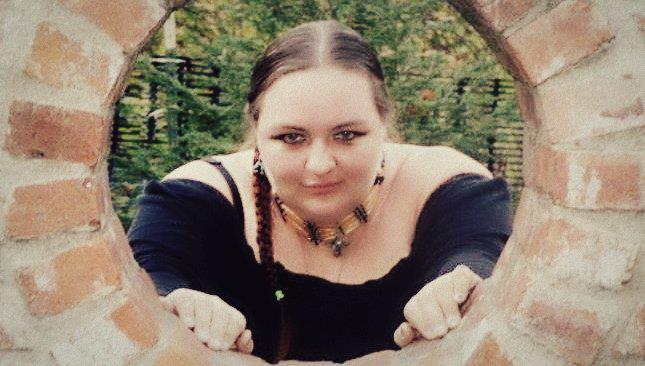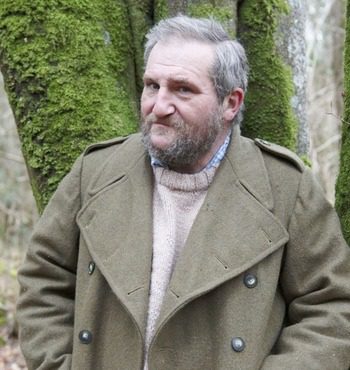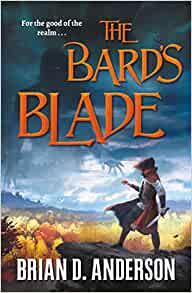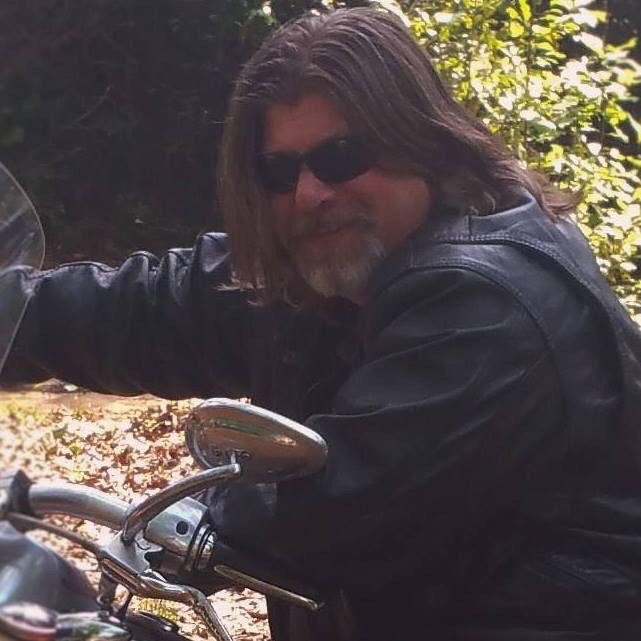
Q: When did you know you wanted to be a writer? Describe the journey that led to the publication of Practical Demonkeeping?
A: I first thought I might want to be a writer when I was 12 or so, and I was writing stories for class. I was a huge Mad magazine fan, so even though I wasn’t aware of it, I think I was writing satire even back then. I sort of toyed with the idea of writing through most of my teens, but by the time I was 17 or so, I knew enough about writing that I wouldn’t be able to make a living right from the jump as a writer, and my parents weren’t going to send me to college to learn it, so I turned to photography, which I pursued for several years. I dropped out of college, worked a number of jobs, didn’t write for years, and when I was about 25 my girlfriend said, “You said you used to write, there’s this writer’s conference in town, you should go.”
So I did. Found out I was pretty good, and started pursuing a career writing while doing my day jobs, which again, were varied, from insurance broker to drive time radio DJ to waiter. I sold my 1st story at 27 and then nothing until I was 33, when I sold Demonkeeping to Disney as a film. It was my first book. (And the film has never been made.) Most of that in-between time was spent reading and getting my discipline together to actually finish a book.

Q: There’s something very real about Pine Cove, despite all the supernatural craziness. How much of Pine Cove, and its inhabitants originated from your own experience?
A: Tons. I lived in Cambria, which is what Pine Cove is based on, for 20 years. Like everyone, I was told to write what you know, so I wrote about a little coastal town in California.
Q: You’ve mentioned doing extensive research for your novels. What 2 books required the most research and what did you do to acquaint yourself with the subject matter before writing?
A: Lamb and Sacre Bleu. For Lamb I read probably 100 books. Everything from history to theology to religious practice in the 1st Century. I spent a little under a month in Israel doing “on site” research. For Sacré Bleu, I had been looking at French Impressionist art for years when on book tour (we have a lot of it in the U.S. museums) so I knew a lot about the subject to start, but then I read biographies of all the artists, learned to paint, learned about the physics of the color blue, as well as the geology of the pigment, and finally I lived in Paris for two months, doing the on-site research. Sacré Bleu was an absolute joy to research. My book, Fluke, was a lot of fun too, and I got to hang out with marine mammal biologists and get in the water with singing humpback whales, but that’s a whole ‘nother story.

Q: The first book I read of yours which made me an instant fan was Lamb. Where did you come up with the idea for a book from the perspective of Jesus’ friend Biff? How was the book received (controversy etc.) Did you think about the potential backlash you could receive for taking a comic stance on religion?
A: I was reading The Master and Margarita, by Bulgakov, which has in it a scene from the trial of Jesus from the point of view of Pontius Pilate, who has a migraine at the time, and it was so vivid and real, for a story I’d heard a hundred times, I started to wonder what would happen if you told the story of Jesus that was that vivid the whole way through. A week or so later I was watching this show on PBS called From Jesus to Christ, where they said that 30 years of Christ’s life was lost to history – we did not know where he was. I thought, someone should write that, and since I don’t know anything about history or religion, I should be that somebody.
I thought there would be a ton of backlash but there was none. I mean, none. And now they teach Lamb in at least a dozen seminaries, some at colleges I couldn’t get into on a threat.
Q: You have written many different styles of satirical fiction, both series and stand alone. If you had to choose a novel that you are the most proud of which would it be and why?
A: Probably Lamb, just because I pulled it off. Sacré Bleu a close 2nd.

Q: I’m a huge fan of your books featuring Pocket the Fool, and I confess aside from the minimal Shakespeare I read in high school , much of my education has come from your books. Were you always a fan of Shakespeare’s work? Why do you think his work is so enduring, and what was the inspiration behind Pocket, one of your most hilarious creations?
A: I didn’t really intend to take on Shakespeare. I had about the same background that you did. Maybe a bit more, but not much. I had always been a fan of his language, but I was by no means a scholar. This was in the mid 2000s, the Iraq war was in full fire, and it seemed that the only trustworthy source for news was comedians. They were really the only ones calling bullshit on the Bush administration. So I thought I would write a story about a fool, a clown that could speak truth to power. I talked to my editor about it, and I said, “I want to write a book about a fool, but I don’t know if I want it to be a generic fool, or Lear’s fool.” She said, “Oh, you HAVE to do Lear’s fool.” And I was off to the races.
Q: Who are some of your biggest comedy influences both literary and otherwise?
A: Literary-wise, definitely Mark Twain and the comic novels of John Steinbeck. Later Vonnegut, Tom Robbins, Douglas Adams, and Carl Hiaasen. Robin Williams, Eddie Murphy, and Richard Pryor had a lot of influence on me, too. I think I learned comic timing from watching comics, less so, from books.
Q: When you are not writing what takes up most of your time these days?
A: Mostly dicking around on the internet. I work out every day, and I still kayak in the summer, although not in the ocean so much, but up on the Russian river where I have a writing cabin.
Q: I’ve heard you mention a number of your books having been optioned for films. Has anything new come out of that? Which was the first book that got optioned?
A: Practical Demonkeeping was bought outright for film by Disney before it sold as a book. I was still waiting tables at the time. That will be 30 years ago this year. Nothing has happened with it, but they gave me enough money to become a full time writer, which I’ve done exclusively since then. Most of the others have been bought or optioned, some several times by some very big names, but so far, nada. I don’t really have any control over that so I just take the check and go off and write another book.

Q: How important is reader interaction to you? I remember sending you a message after reading Lamb and being shocked that you wrote me right back. What is your current preferred method of interacting with your readers?
A: I got in the habit of answering all my e-mail back in the mid nineties when I wasn’t touring nationally. I think I was the first non-tech writer to have my e-mail address on my book. I thought it was a way to connect to readers I couldn’t meet. I’ve answered all my e-mail since then, although most of my interaction these days is on social media. Mostly Twitter. I only go to Facebook to post tour dates and book releases.
Q: If you could offer a piece of advice for new and aspiring writers what would it be?
A: Read. A lot. And read some more. Then learn to finish stuff. Start small, but get in the habit of finishing stuff.
Q: If you don’t mind can you give out readers some info on your next project?
A: I’m writing a sequel to my 1940s tough guy comedy, Noir.

Q: Your Vampire Trilogy came out at time when sparkly Vampires were in fashion and it seemed like you couldn’t escape from teen Vampire fiction. Was your intent to demolish all the then current Vampire tropes?, or am I reading in to things too much? What are your thoughts looking back on the trilogy as a completed work now that the Vampire craze has settled a bit?
A: Actually, the 1st of those books came out ten years before Twilight. I just wanted to write a funny vampire story. It wasn’t really a reaction to what was going on in fiction, but I had been reading vampire fiction since I was a teen and I thought I might have a fun take on it.

Q: You have tackled Shakespeare, Renaissance painters, Noir fiction, religion and Oceanography in your more conceptual novels. What are some of the other concepts that you would love to write about ?
A: I’ve had an idea set in the Aboriginal Dream Time for years that I think would be fun, but I’m not sure I could get away with it, now, being a privileged white guy. Cultural appropriation and whatnot.
Q: This one is for the hardcores. Is Pine Cove done, or might you return to that world? And will we ever see another appearance by Roberto the Fruit Bat?
A:I have no idea.
Website: www.chrismoore.com
Facebook: https://www.facebook.com/theauthorguy/
Twitter: @TheAuthorGuy
























